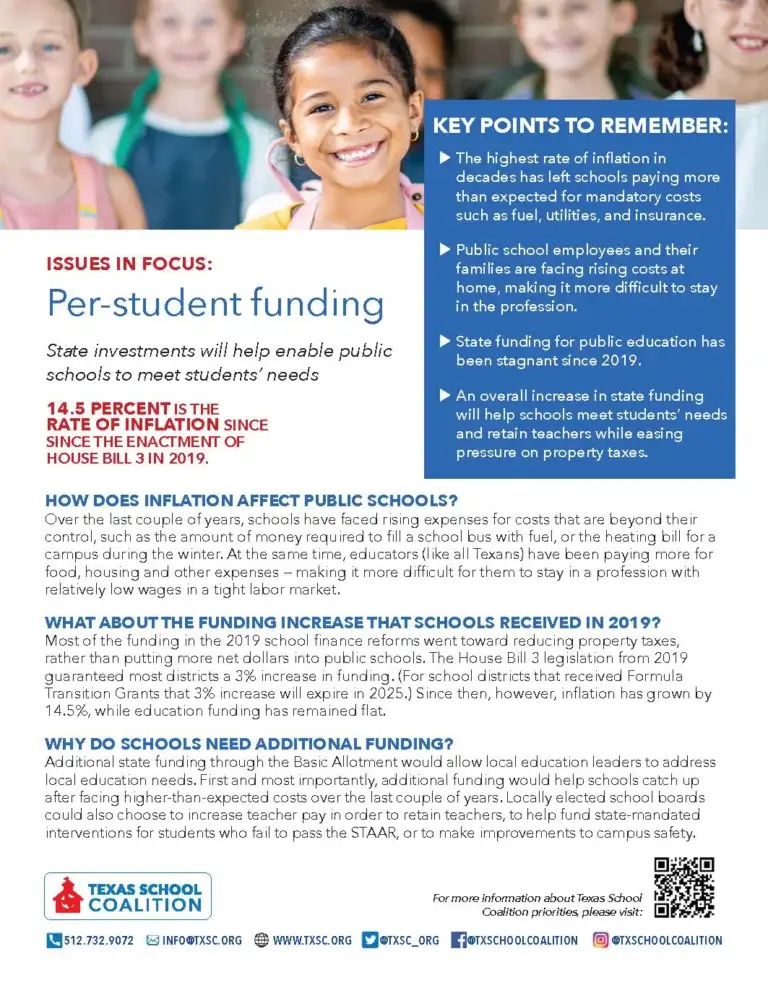KEY POINTS TO REMEMBER:
- The highest rate of inflation in decades has left schools paying more than expected for mandatory costs such as fuel, utilities, and insurance.
- Public school employees and their families are facing rising costs at home, making it more difficult to stay in the profession.
- State funding for public education has been stagnant since 2019.
- An overall increase in state funding will help schools meet students’ needs and retain teachers while easing pressure on property taxes.
HOW DOES INFLATION AFFECT PUBLIC SCHOOLS?
Over the last couple of years, schools have faced rising expenses for costs that are beyond their control, such as the amount of money required to fill a school bus with fuel, or the heating bill for a campus during the winter. At the same time, educators (like all Texans) have been paying more for food, housing and other expenses — making it more difficult for them to stay in a profession with relatively low wages in a tight labor market.
WHAT ABOUT THE FUNDING INCREASE THAT SCHOOLS RECEIVED IN 2019?
Most of the funding in the 2019 school finance reforms went toward reducing property taxes, rather than putting more net dollars into public schools. The House Bill 3 legislation from 2019 guaranteed most districts a 3% increase in funding. (For school districts that received Formula Transition Grants that 3% increase will expire in 2025.) Since then, however, inflation has grown by 14.5%, while education funding has remained flat.
WHY DO SCHOOLS NEED ADDITIONAL FUNDING?
Additional state funding through the Basic Allotment would allow local education leaders to address local education needs. First and most importantly, additional funding would help schools catch up after facing higher-than-expected costs over the last couple of years. Locally elected school boards could also choose to increase teacher pay in order to retain teachers, to help fund state-mandated interventions for students who fail to pass the STAAR, or to make improvements to campus safety.

